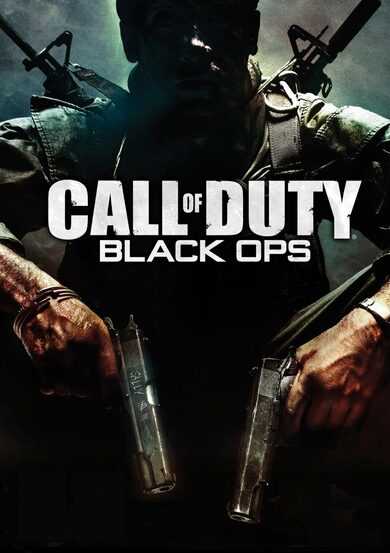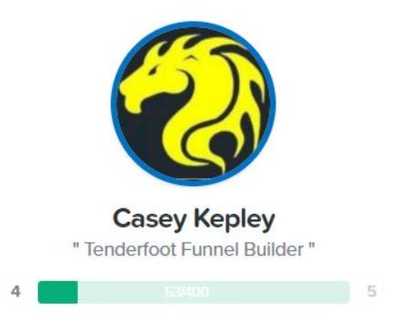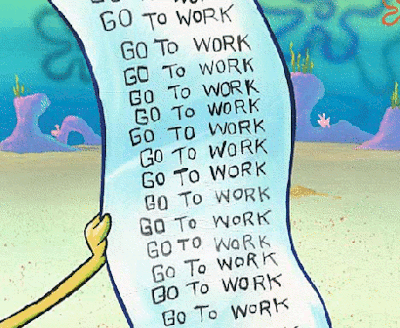Using Video Game Addiction to Hack Your Real Life Success
June 23, 2020
Hey everybody, it's Jordan, the Millionaire Millennial!
Today I want to write about why video games are so addicting and how you can use that addiction to better your life!
I have come up with a little brain hack that I have been working on for several years now and it seems to work pretty well. This is something that I have been doing on my own for years. I have no special training or any secret background in psychology or anything.
First and foremost, something that everyone needs to understand and that is humans enjoy making progress. On top of this, humans love to be recognized for their progression. However, this recognition does not need to come from another human being - they just need to receive some form of it.
Almost all games give some recognition of progression or validation, whether you are playing the game or just watching. In fact, there's a study that showed that people that are just watching other people play sports are feeling the same emotions and the same psychological triggers as the people that are actually playing the sport.
Which is why watching sports is so addicting and why people just sit on the couch and watch sports all day. You also can't forget about fantasy football, fantasy basketball or any fantasy sport - all addicting for the same reasons. When watching sports, there is a connection that you can make with the athlete that's playing the game.
You can follow their career from the very beginning and as they progress and get their recognition you can almost mirror that in your own head. However, at the end of the day, they're the famous athlete and you're not.
I am going to explain to you how to be that famous athlete (or successful in any regard), if you want to be, instead of someone just watching from behind the scenes. All of this can be tied back to games, but I am specifically going to hone in on video games and why they are so addicting. This, again, is all connected to progress.
In video games you can easily see your progress in game, whether that be single-player or multiplayer. A perfect example of this easy-to-see progression is one of my all-time favorite games: Call of Duty: Black Ops.

I remember the day the game came out, me and my friend left school and went to Game Stop to buy it. We skipped class and played the rest of the day.
If you have played or are familiar with that game, then you know how the progression works. If not, it's very simple. You have a simple leveling system in which you get XP to advance to the next level. At each level you unlock something new such as a gun, icon, title, etc.
The point of the leveling was not to unlock something significant at every level, but rather to give you a slight feeling of progression. Now, if you didn't level up in a single match they would reward you with seeing your XP bar go up, giving you that satisfaction of progression.
Again, someone (as in another human) is not recognizing your progress here but rather the game itself is by giving you new weapons and icons etc. Since the game was also online, you did have the opportunity to get recognition from other people playing. The recognition would come from comments in game or from people talking about your gun skin or your level of skill in the game.
Although, the online communities of those kinds of games aren't known to be very friendly, but there still people in there who would at least recognize your rank even if it was to hate on it.
Haters = Your biggest fans.
These two things combined make playing video games so addicting: the draw of unlocking new things AND getting higher in level which equates to more progression. Once you start getting better and the system recognizes this, you will want to keep playing the game.
In the case of most games, they make progression really easy so that it builds the addiction with the player quicker. When you keep seeing this consistent, almost rapid growth, you start craving it more. At the end of the day, what it really boils down to is just having that experience bar.

Seeing that consistent climb on that bar pushes the player to play more and more. Translating this into real life is really difficult because in real life you don't have an XP bar. Forget an XP bar, you don't even know where the levels are or if there even are any levels.
You are just moving along in life with no easy way to judge your progress. Even if you could judge your progress, you still don't even know if you're progressing in the right direction. These are all very hard problems to solve and I would argue to say they are philosophical questions.
One thing is for sure: making progress in real life is difficult. On top of this, life is extremely long compared to the span of a video game. You can beat a game in like 20, 30, 40 hours, right? Well you can't beat life that quickly, now can you? ;P haha.
Life is so long (comparatively) and there is no definite time frame, which makes it very difficult to gauge your progress throughout life. Compared to a video game, this seems next to impossible, which is why it is easy to just play a game. It is much more satisfying and much quicker to see your progress and get the recognition rather than doing it in real life.
The thing with real life is that progress is happening all the time. You ARE moving forward. You ARE getting better. As long as you're honing your skill and working on something everyday, you'll continue to advance... but it's hard to tell in real-time.
To make it even more challenging, there is no real recognition or award system while you are progressing. You only get the reward or recognition once you have "made it". You don't get the recognition until you're already a heavily physiqued bodybuilder or until you already have made a million dollars or have this big business that employs a bunch of people.
You won't get any recognition while you're on that path to whatever goal you are chasing and you really can't tell any progress. Which is a reason why video games are really addicting and why they are so much easier than real life.
Now how can we use video games to reverse engineer this issue and brain hack ourselves? Can we use that addiction, that desire for progress and recognition, in our individual lives?
The term "gamification" is something that is quite powerful. It's what a lot of companies use for sales, marketing, and customer retention. It's used to keep people involved in whatever product they using.
A great example of a company that uses this is ClickFunnels.

They're a software company that lets you make sales funnels and they have gamification built right into their system. When you first sign up you have 0 XP and you're level 1. When you make your first funnel you get 100 XP and you level up and you're now a "beginner funnel builder". As you continue to use the software, you level up and get experience. You quickly advance through the "ranks" and get to "Tenderfoot Funnel Builder."

If you keep going, eventually you'll get to "master funnel builder." This is their gamification process and a lot of companies use this exact progression addiction to keep their users using their tool or platform.
They know it's really addicting to play games and a good way to get people to keep using their products is to give them some level of recognition or progress.
So what's to solution here? How can we apply this to our own success and life? Well hopefully by now you're starting to see the solution for yourself:
You must gamify your life.
I know that sounds rather complex... It is. There's not really a easy solution either. To be honest, I'm still working on a really in-depth solution to it, but I will share with you where I'm at.
One thing that's works really well is a checklist. Now I know that's nothing new and is something you have probably heard all your life, but hear me out.
On a typical normal day you have things you'd like to get done. Maybe you want to set up a new page for your website or you might want to write an email to someone. The night before, you make a checklist by either writing it out or using an app/program. It doesn't really matter as long as you make the checklist.
The key is that they have to be very concrete things on your checklist, they cannot be vague and ambiguous things. So, "make a website" is not good enough. Something like "Research hosting companies for new website" is much better.
Most important of all (and this is actually the crux) is they have to be short. They have to be able to be accomplished in about 10 or 20 minutes tops.
Because the reality is you could go play a video game, and in 10 minutes you could rank up or something that will give you some sense of progress and recognition. The goal is to have something that can compete with that in real life. Which is why you want this checklist only to have stuff that you can do in 10, 15 minute intervals.
A good example of this is writing an email in the morning. You write an email and then you get the satisfaction of checking that off your checklist. Then as your checklist gets marked down you have a sense of progress that you're moving forward.
I know this is challenging and even more so when looking at larger term goals. It's hard to look at the things that you want to do over a span of years and having to break that down into months, weeks, days, hours and even minutes.

This is challenging and I'm not going to say it's easy - because it's not. It is actually much easier to just go play video games and waste away your time. However, if you want to be productive and make progress in your own life on the things that you think are meaningful to you, then this is a solution that I've come across that is working really well for me.
Now, the hard part is getting that sense of recognition from a checklist, because at the end of the day it's only you looking at the checklist. There's not any inherit reward system built into a checklist. There isn't any confetti that shoots out of the sky whenever you check off a task. You don't get a level up or a spontaneous guitar riff like they did in Call of Duty every time you leveled up.
Now the entrepreneur in me is coming out while writing this because I'm imagining if there was some sort of software that when you make a checklist it becomes visible to other people. Once you check something off then other people can congratulate you for checking that task off your checklist and maybe there's like a fun little confetti animation.
Maybe I've got another software project to build ;)
Anyway, what I am trying to get at is there's got to be a good way that you can get the satisfaction of being recognized as well as making progress in real life. At the very minimum, you should have a paper and pencil checklist that you fill up each day for the day after. Checklists are incredibly powerful tools that help you see the progress you're actually making.
For those who like to challenge and push themselves then this is the hard version of checklist: Plan out your entire next year and break it down by days then break those days down into 10 minute intervals.
Yeah... I haven't even gotten to the point of doing this yet which is why I would classify this as veteran mode (or at the very least hard mode).

Imagine if you planned out every single day in 10 minute intervals for the next year or even several years. This would take a lot of dedication, but I can almost guarantee you that you would excel very rapidly and your sense of progress would be quite satisfied.
Now, some people say to put the hardest stuff or the most important stuff at the top of the list. I disagree with this and think number one should be the easiest or the shortest thing that you can do. Then, after one and maybe even two, you put in the more important stuff. The purpose of the first thing on the checklist is to get you going, you don't want it to be the hardest thing otherwise you will never want to start your day.
To get your day started, it has to be something simple, something that will give you easy progression and give you the energy to follow the rest of the checklist. For me - I just send an email to someone I need to contact. This only takes a few minutes and then my day gets going. Once I send that email out, I put a nice check mark on my checklist and move onto the next task.
The checklist needs to be competitive with what I could do in 10 or 15 minutes while playing video games. If it's styled like a video game, then I've tricked my brain into thinking I'm playing a game. I've gamified my life and now I can continue binge "gaming" with my checklist!
I don't want anybody to misunderstand me though: I love video games and they are still a really important part of my life.

I play a few games each day, but only after I complete my checklist and after I get everything done for the day that I want to get done.
It is important that you relax after finishing your checklist. Some people might come at this same problem and say: "The solution is to stop playing video games all together or stop watching TV." I partially agree: watching TV is the bane of human existence, but this is a discussion for a different time. ;P
But really, the solution is not to just quit playing video games all together; the solution is to balance your life and accomplish the things that you want to accomplish first, then relax. You need some level of relaxation because not many people can work 16 hours a day, every day, for 40 years. Instead of working 16 hours a day for months and getting burned out, you just break that up into working for X hours each day and relaxing the rest.
You break apart the day into a checklist and set out to complete that check list each day. Once you finish the checklist, you can go relax, read a book, play guitar, learn a new instrument, hit the gym, - whatever it is that you like to do.
As long as what you are doing is enjoyable for you and you can relax. Maybe the gym isn't fun for you, that's OK. If the gym isn't fun then put that on your checklist, that's what the checklist is for. Put things on your list that are not fun for you but need to be done in order to progress and move forward in your life.
I hope all of this helps you out and helps you understand where the video game addiction comes from. Hopefully, you also picked up a trick or two to help benefit and better yourself.
So that's all I've got for today and I'll see ya next week!
Written by Jordan Kilburn A.K.A. the Millionaire Millennial who lives in Dallas and helps people enjoy life, make money, and build cool stuff. You should follow him on Instagram / YouTube









